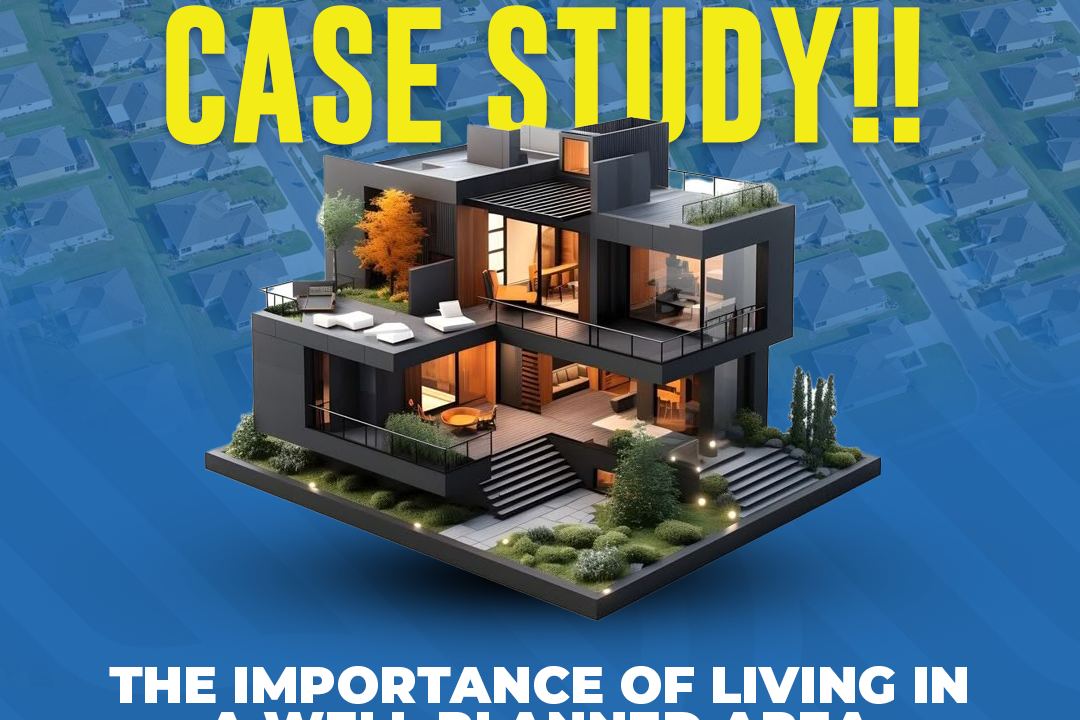
It is statistically challenging to find a percentage of well-planned area in Lesotho. However, the studies suggest that, approximately, 70 % of urban population in Maseru lives in an unplanned area. This is a wakeup call for Lesotho to address this problem since the country is small and has limited to be mismanaged.
Living in a well-planned area helps in the promotion of well-being of the community. It does this by attracting access to basic goods and services of high quality, and it is what the modern Society is striving for. Let’s take a look for electricity and water supply as an example; In a well-planned area, it’s hard to experience load shedding and insufficient water supply. The assessment for the provision of electricity, water supply and water reticulation are enabled by the plans which helps municipalities to provide the necessary infrastructure.
The cost implications of providing infrastructure in a well-planned area, are reasonable to the company and affordable to the consumers. This is because it is easy for electricity company to make clear assessment about the cost of living in well-planned areas and install electricity transformers that will cater supply for present and future residents. Water company as well, easily make assessments of the current and future demands of water supply to the residents of a well-planned area. Therefore, it installs suitable water pipelines, where every resident is able to access clean water and sewage reticulation at affordable costs. Apart from that, we can categorize three ways in which well-being of the community is promoted by living in a well-planned area.
1.0 SOCIAL IMPACT
Well-Planned environment creates enhanced social life. This is through access to transport and communication networks. When looking at communication network, it is in rare cases to experience problems of internet network when one wants to access social media platforms. This is because the place is well planned, and every problem is easily dealt with. From this, it is safe to say that, living in a well-planned area fosters the social interaction and community gatherings as people connect and participate in a shared activity. Additionally, living in a well-planned area contributes to minimization of Land disputes among the residents. People hardly find themselves seeking intervention of Courts about their land matters because boundaries from one plot to another are well defined and marked.
2.0 ECONOMIC IMPACT
Well Planned area is eye-catching and creates positive economic impact to the lives of the community. It attracts development. Basic goods and services for consumption. Therefore, it addresses high poverty rate issues faced by a country. To illustrate further, well-planned areas attract investors both locally and internationally. When looking at well planned areas in Lesotho such as Maseru West, Thetsane West and MASOWE, it is inarguable the most aesthetic and more functional settlements than unplanned areas. This is evidenced by establishment shopping centers, schools and health centers and latest house models. Moreover, planned area leads increased value of land if one wants to carry out commercial errands on it.
3.0 ENVIRONMENTAL LIFE IMPACT
Firstly, well-Planning of areas creates comfort zone for people and natural habitats. This is because it makes frontiers between residential, arable and graze lands. The preservation and management of fauna and flora in well-planned areas is imperative. This is because the certain portions are usually reserved for botanical gardens, parks and zoos. Secondly, there is improved air quality since, incorporating green areas and open spaces to filter pollutants. Lastly, there is efficient management of water resources and control and management of soil erosion and hazards.

